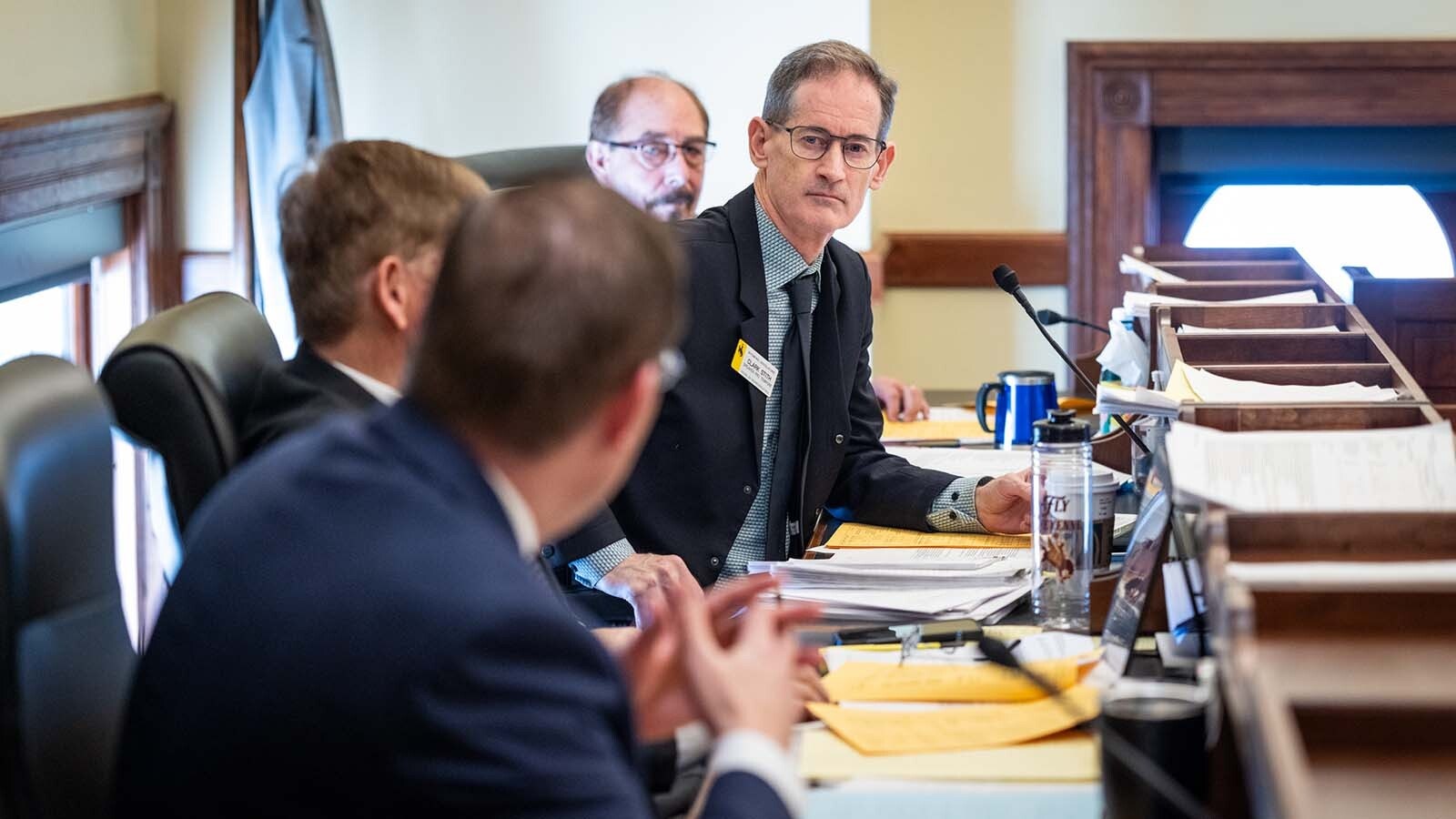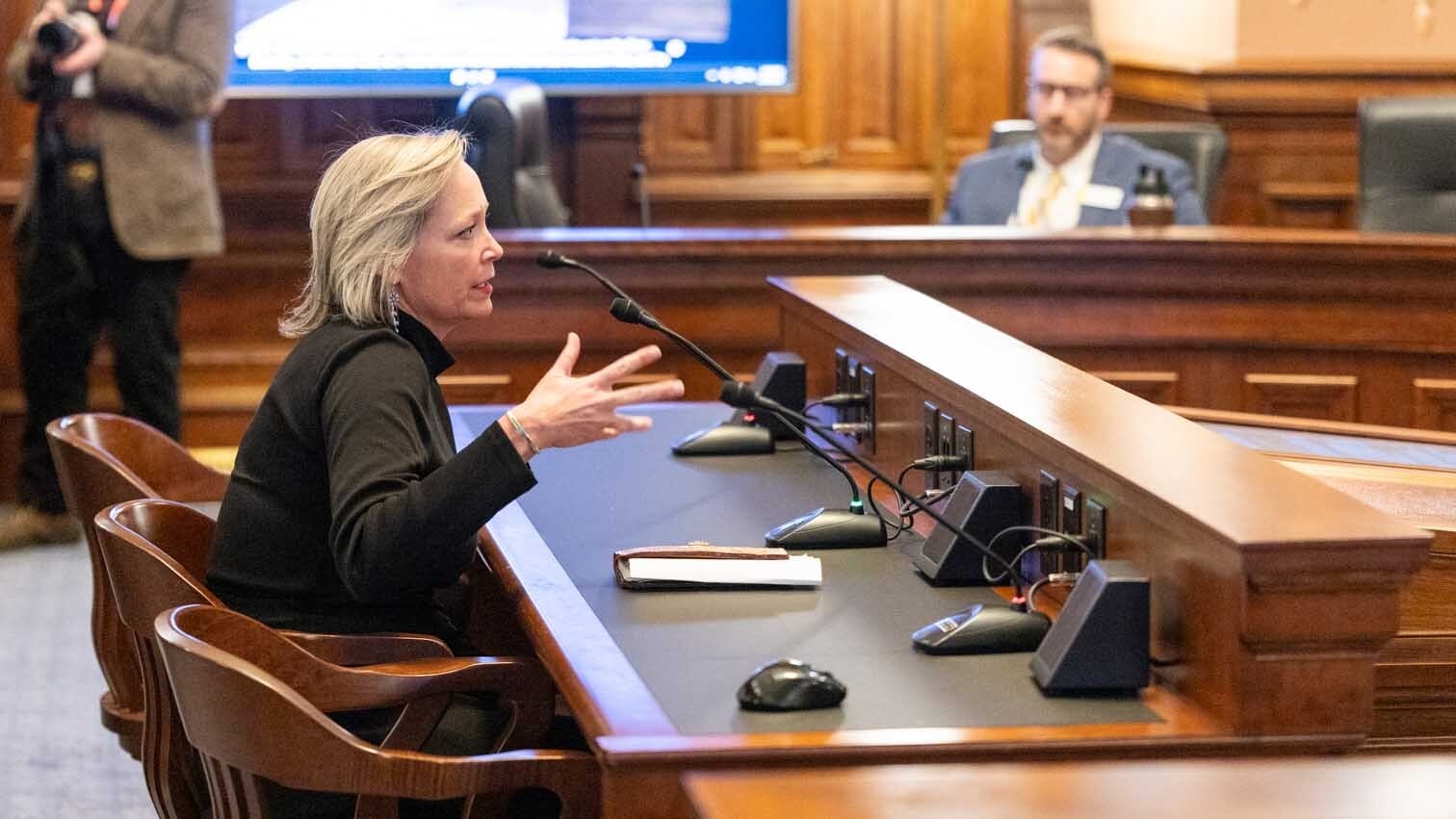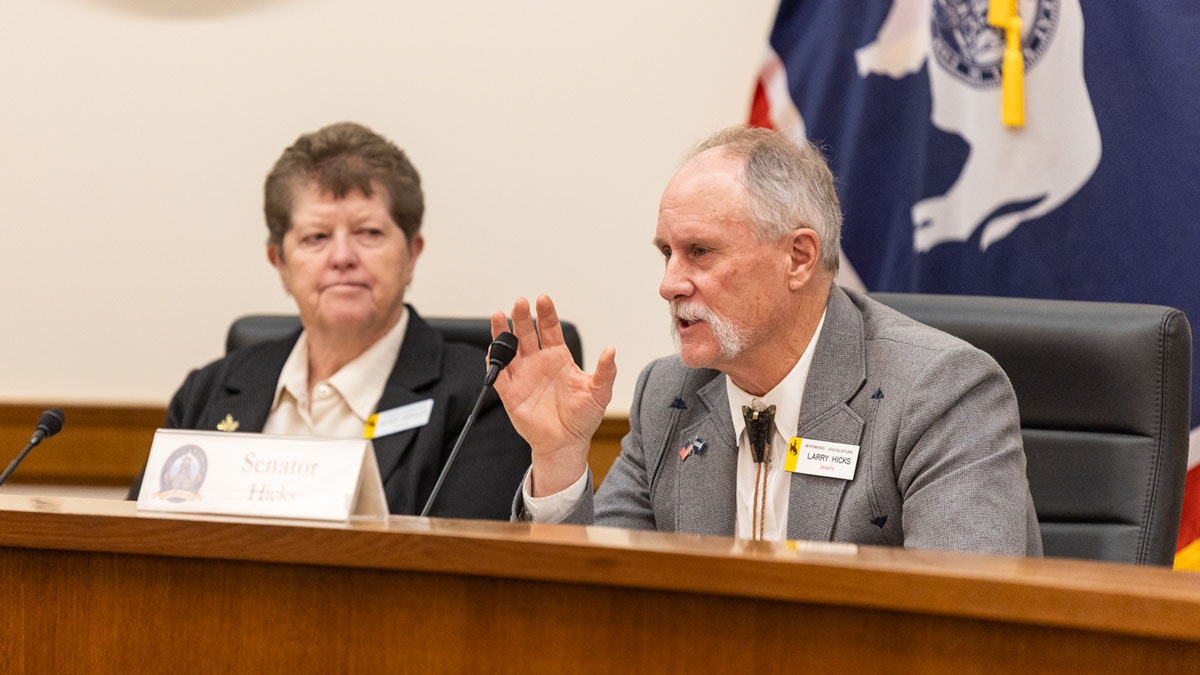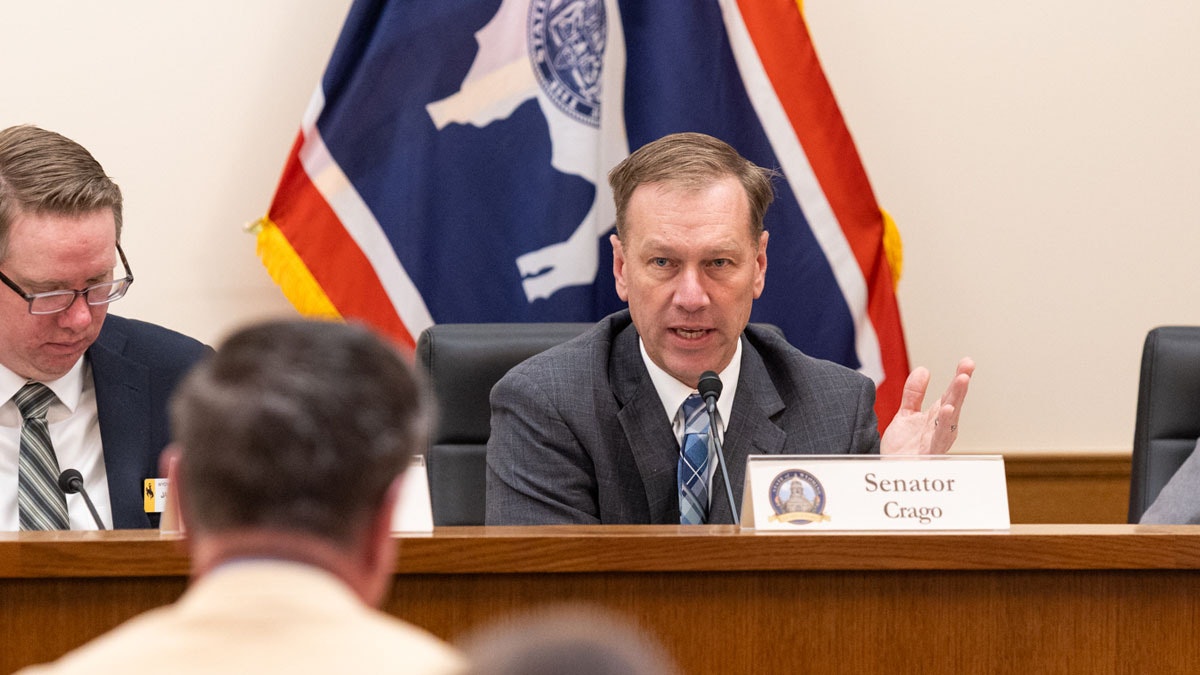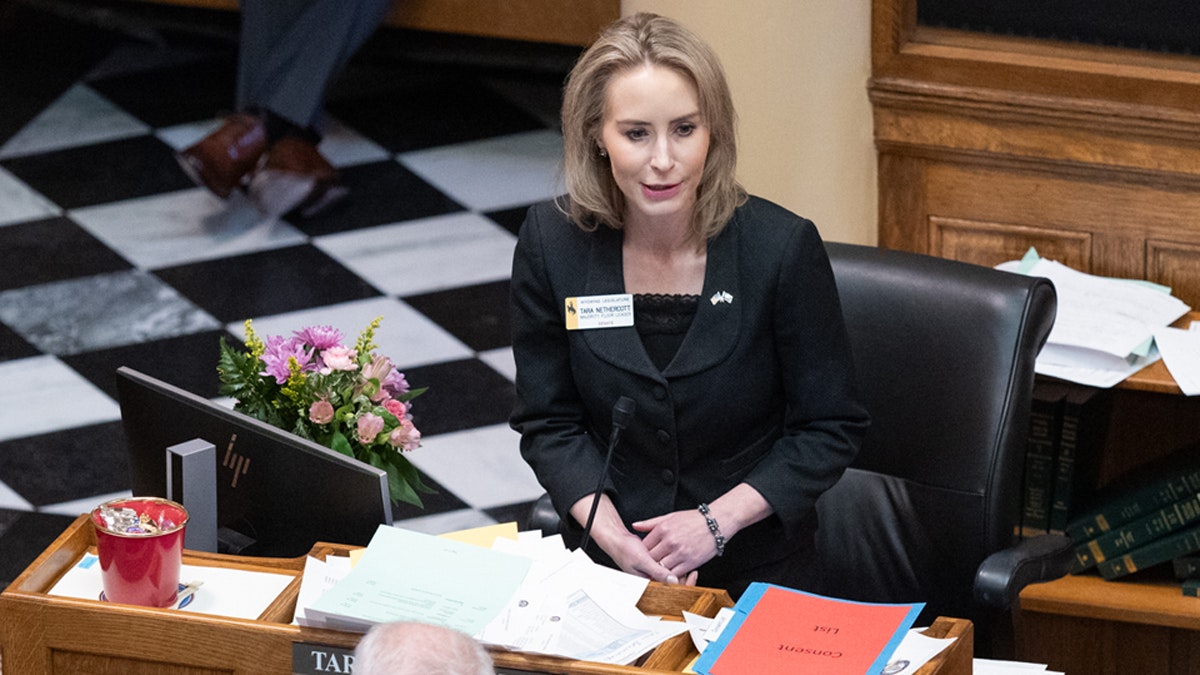With the Wyoming House and Senate versions of the state’s biennial budget about $1 billion apart, some lawmakers the House Appropriations Committee on Monday are already contemplating a special session to hammer it out.
Sitting at two weeks to go in the session, with many opportunities still remaining for budget negotiations, state Rep. Clark Stith, R-Rock Springs, confirmed to Cowboy State Daily that asking about a special session at this point in the session is unusual.
“Things are in flux and things are unusual, stay tuned,” he said.
The chambers technically are $1.1 billion apart, but Stith said he views the $251 million less the Senate dedicated toward a particular savings account as a spending measure.
Rep. Landon Brown, R-Cheyenne, said expectations for a special session had started even before the Legislature convened the 2024 session.
He said when Sen. Tara Nethercott, R-Cheyenne, was replaced as chairman of the Senate Appropriations Committee by Sen. Dave Kinskey, R-Sheridan, there was a noticeable change in the expectations for the Senate’s version of the budget, taking a more fiscally stringent approach to appeal to the Legislatures more far-right members.
What’s Next?
There was a somewhat pessimistic and dour tone overshadowing Monday’s committee meeting, particularly centered around whether the House and Senate can find any middle ground for the biennial budget.
A handful of legislators told Cowboy State Daily they could not remember a time when the House and Senate were so far apart with their budgets at this stage of the process.
After each budget is presented to the Senate and House, a joint conference committee (JCC) will be convened to try and square up the differences from each and find middle ground.
The JCC will have five members from each chamber.
If after the first JCC meeting, these differences are not able to be alleviated, a second JCC will be held where participants can propose any change they like to the budget, whether or not there was a difference between the two chambers on it before.
Don Richard, budget and fiscal administrator for the Legislature, said the budget process has not advanced to a second JCC meeting since 1999, where the House and Senate eventually agreed on 10 amendments.
If it gets to that stage, which Brown expects, he said it will result in significant political grandstanding.
“This is a lot of posturing for nothing more than just posturing,” he said. “It’s not about setting the record straight and doing what’s right for Wyoming and going out and trying to win an election season.”
Sen. Dan Laursen, R-Powell, disagrees and believes the budget the Senate crafted was sound.
“Smaller government is good,” he said. “Not spending money is good, and giving it to our people is good.”
If legislators want to override any vetoes Gov. Mark Gordon may make to their budget, they must present it to him by midnight next Monday. In the less likely scenario that the Legislature doesn’t wish to override Gordon, it must present the budget by midnight March 8.

Special Session?
The Wyoming Constitution provides for 60 days of legislative meetings over two years.
Since the 2023 general session only convened for 37 of its allotted 40 days, the Legislature could also carry over three days into the second full week of March.
The Legislature also can extend the session by meeting once every three days for several more weeks. Richards said he’s only aware of this happening once in Wyoming history.
Under either scenario, Richards said it would be difficult for the Legislature to complete a new budget in less than two weeks.
“If you’re going to recreate that process, it’s realistically a several week endeavor,” he said.
If a completely new budget has to be created, as some during the meeting mentioned, this would likely facilitate calling a special session, which can be done by either the governor or the Legislature.
Although Richards said traditional rules are usually applied during these sessions, he said nothing precludes the legislators from using more streamlined processes.
Any special session called would have to happen before July 1 when the new fiscal year begins.
The last special session in 2021 cost $233,000, according to the LSO office. The last special session called for a budget was 1998.
Optics And Reality
Stith pointed out that the Senate may have not have spent as substantially less as the House as it appears, but put a significant portion of money in different savings and reserves accounts.
For instance, $75 million was pulled from a University of Wyoming research program to be placed in the Legislative Stabilization Reserve Account. Another example was the roughly $200 million proposed for school construction projects that was cut from the Senate budget and put into savings.
One of the biggest inspirations for this approach to budgeting on the Senate side was to simplify the way money is apportioned out of a desire for more public transparency.
“We’ve got so many pots, nobody knows what pot has what in it,” Laursen said. “And all the secret people over there know what’s in the pots, they made the pots.
“People don’t know where the money comes from, they just pull the money from everywhere.”
Nethercott is optimistic that the two budgets aren’t as far apart as they may seem and are set up in a way that could lead to negotiating.
“Looking at the projects funded, I don’t know that it’s that big of a difference,” she said. “If you look at what was chosen to be funded on the House side and what was cut on the Senate side, it’s not unattainable to reach a compromise.”
Fine Details
One of the biggest differences between the budgets is the Senate’s cut of roughly $254 million from Gordon’s large energy and infrastructure matching grants programs.
Also removed from the Senate budget was $3.4 million in state employer retiree contributions and $18 million in employee raises.
The Senate also forbade any monetary transfer from the Legislative Stabilization Reserve Account to the School Foundation program. Previously, there was a $100 million contribution made to this account traditionally funded by property tax revenue.
Richards said due to the number of property tax relief bills remaining, the risk of the School Foundation Program becoming depleted is “dramatically higher” than what was predicted a few months ago.
Multiple pieces of legislation could pass into law that dramatically reform property tax revenue in Wyoming in multi-faceted ways, Richards said.
Both chambers ignored historical precedence for keeping a minimum of 5% of the general fund in the budget reserve account, instead keeping a much lower $20 million in the House and $12 million in the Senate.

Leo Wolfson can be reached at leo@cowboystatedaily.com.

